In the sleepy rural town of Bamban in Tarlac, a few hours north of Manila, one thing stands out: a sprawling compound with tall buildings just behind the tiny municipal hall. Blocking the main compound entrance was an empty shopping mall.
But this was no ordinary complex. The country was in for a surprise when authorities raided it in March, rescuing more than 800 people, mostly undocumented workers from mainland China and Vietnam.
It turned out to be a Chinese-run multi billion peso scam hub, earning tens of millions a day by tricking people, mostly Westerners on dating and social media sites, to send money. Aided by a corrupt system, these hubs thrived in the country for years, as in other Southeast Asian nations. Workers are housed in self-sufficient compounds or buildings. They were forced to meet quotas and if they failed, they were hurt and tortured.
Inside the Bamban compound were thirty-six multistory buildings – serving as offices, operation centers, restaurants, workers’ dormitories, and the Chinese bosses’ luxurious villas. In the operation centers, dozens of long white tables lined the rooms, two rows of workers facing each other with their own flat screen computers. SIM cards – both local and foreign – were scattered across the tables.
On a white board, diagrams and notes written in Chinese gave a glimpse into their operations. A Vietnamese worker left a notebook on the desk detailing steps on how to talk to “customers” and deceive them.
In the basement of the big boss’ villa, a secret tunnel connected his wine cellar to the other buildings. More SIM cards and Chinese bank documents were on the desk near the tunnel entrance. Empty Chanel and Miu Miu boxes were left inside the cabinets in the bedrooms. Overlooking the room was an Olympic-size swimming pool. Dozens of luxury cars were parked just outside.
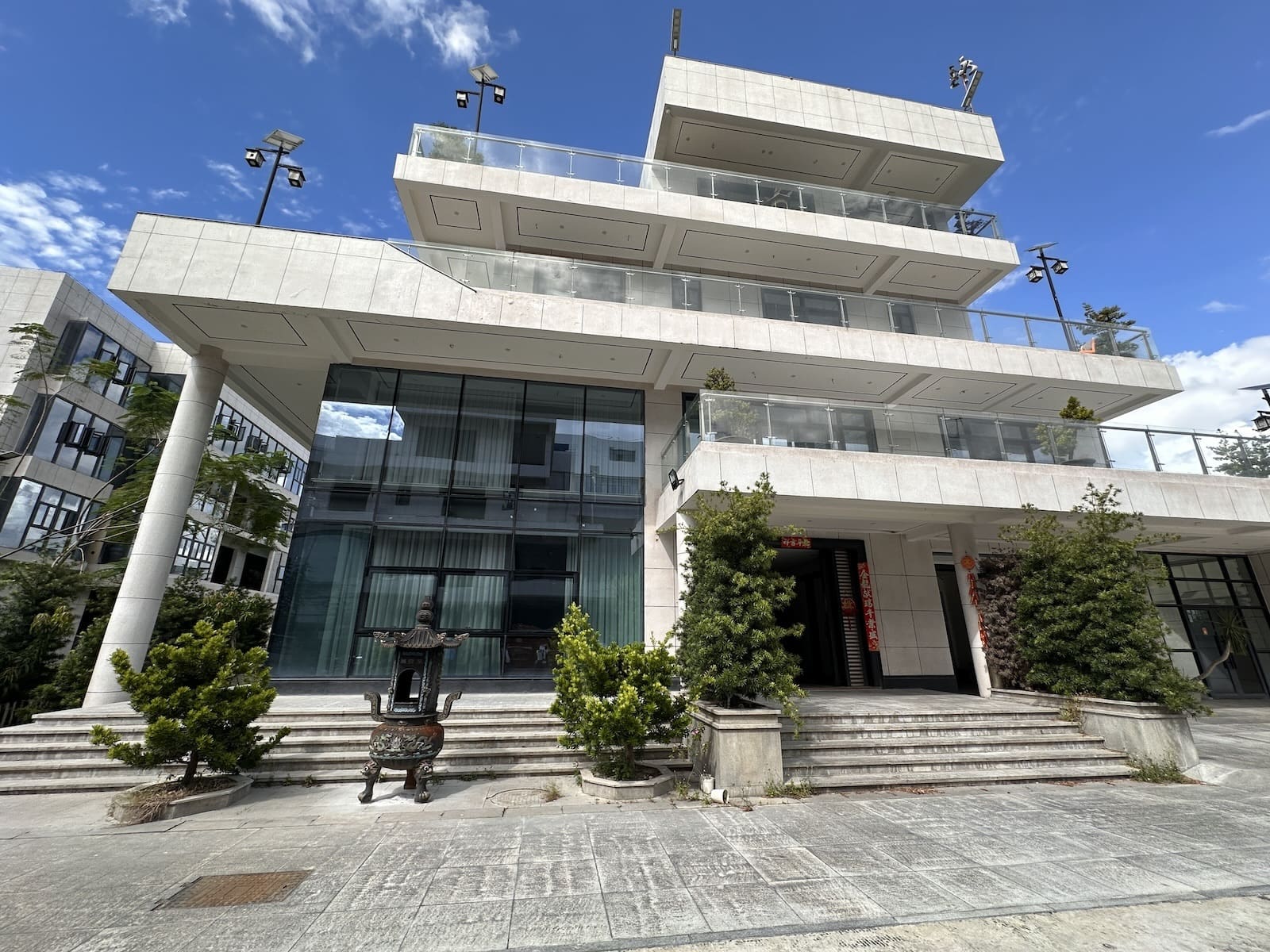
The Bamban compound was only one of a dozen scam hubs raided this year. These hubs used licenses for Philippine offshore gaming operations, commonly called POGO, as their front. POGOs are online gambling firms that operate in the country but cater to customers outside. It was a new kind of gaming license, introduced in the country only in 2016 under former president Rodrigo Duterte.
As POGOs quickly became the subject of early controversies, a game was playing out in public. Duterte initially opposed it in his speeches and interviews. The reality, however, could not be farther from the theatrics.
Just five months after POGO licenses were created by the Philippine Amusement and Gaming Corporation or Pagcor, Duterte made it official via Executive Order 13. It authorized licensed offshore gaming, even if it was not explicitly allowed under Philippine laws. This paved the way for the rise of scam compounds. (In 2023, the Marcos administration renamed POGOs to Internet Gaming Licenses, IGLs, but they are essentially the same).
Under the Duterte administration, POGO-related murders and kidnappings were reported to authorities but no concrete actions were taken. It was so prevalent that the police even considered enrolling its troops in Mandarin courses to address crimes involving Chinese nationals.
But it was only in early 2023 when authorities began raiding scam hubs masquerading as licensed POGOs. Taking the lead under the new administration was the Presidential Anti-Organized Crime Commission (PAOCC), a small agency under Malacañang.
Loose regulation and corruption
The Philippines has been at the center of international criminal operations due to its loose government regulation and corruption.
In February 2023, regional police operatives first raided the Bamban scam compound, but illegal operations went on as usual, owing to alleged ties with local police and officials.
As POGOs quickly became the subject of early controversies, a game was playing out in public. Duterte initially opposed it in his speeches and interviews. The reality, however, could not be farther from the theatrics.
Alice Guo, the mayor of the town, owned the real estate company that leased the sprawling lot. After the raid, the scam hub simply changed its name from Hongsheng Gaming Technology Inc to Zun Yuan Technology Inc.
Bamban residents recalled how fast the compound was built even at the peak of the pandemic lockdowns, recalling how dozens of trucks worked 24/7 to pave over the farmland with the help of hundreds of local and Chinese workers.
The following year in March 2024, the compound – under the new name – was again raided, this time led by the PAOCC. This blew the lid off the scam center operations in the country. A little too late, yes. But better late than never, experts and authorities said.
Congressional investigations later revealed distrust of police operatives from the Criminal Investigation and Detection Group, who were suspected of being coopted by scam operators. There were hints of leaks before the March 2024 raid: When the team arrived, foreigners had already began leaving the compound. The CIDG had denied the allegations.
The Philippine National Police relieved all 49 police officers in Bamban. They are now under investigation for their alleged connection with Guo. A Vietnamese worker, who escaped the compound early this year, said in his affidavit that Bamban cops even asked him to sign a document declaring he will not file any case.
Guo had purchased the vast lot in 2019 and helped lobby the council for the license of the questionable business even before she ran for mayor in 2022.
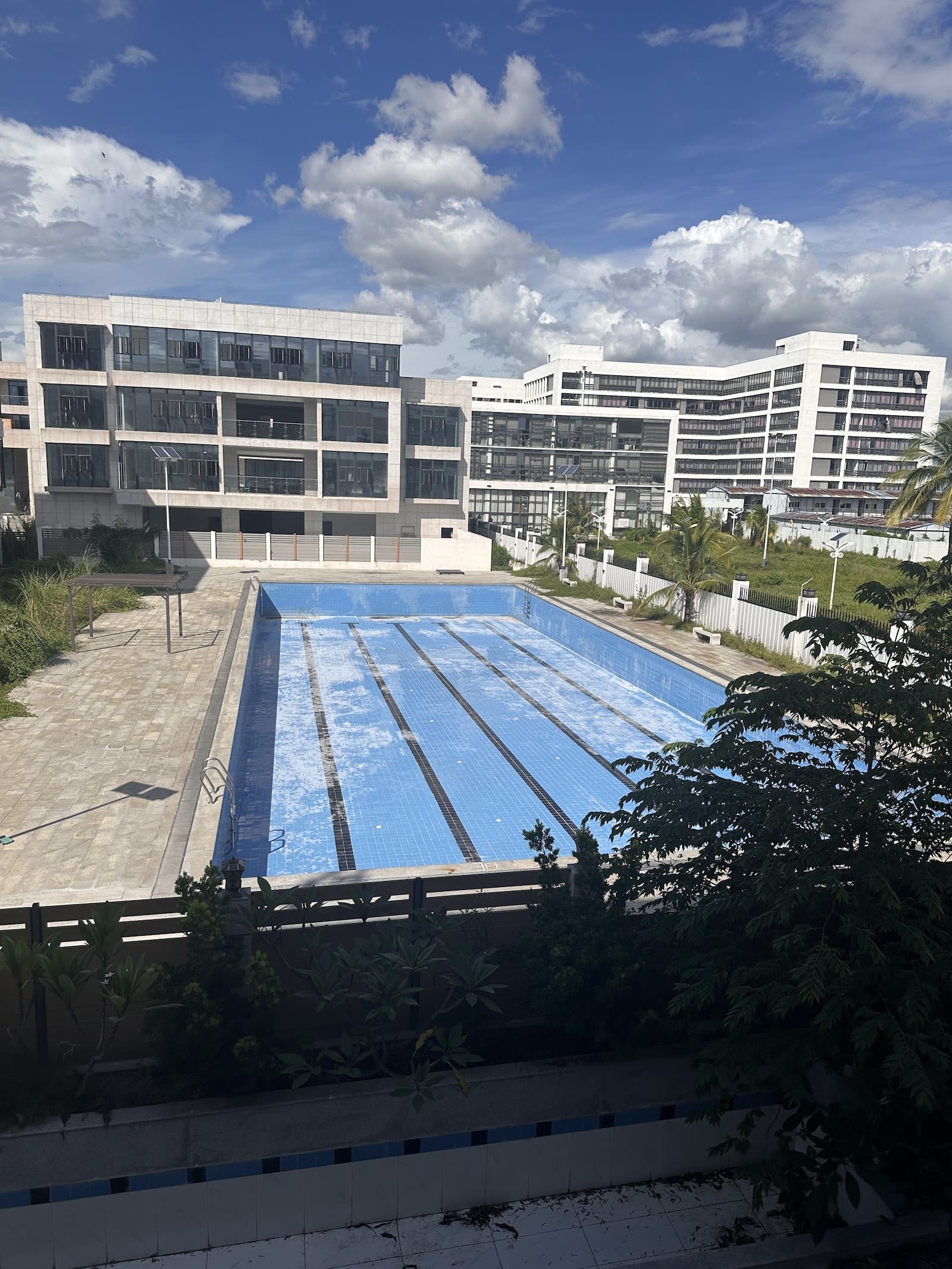
The Ombudsman, the country’s anti-graft prosecutor, ordered the dismissal of Guo, citing her failure to revoke the license of Hongsheng despite the February 2023 raid and her issuance of business permits to Zun Yuan, among others.
These were a series of acts that the Ombudsman said were interconnected, “leaving no other conclusion than that they were committed by Guo with ulterior motive or self-interest.” Aside from Guo, the Ombudsman suspended the town vice mayor and most of the councilors.
Similar modus operandi exists in other areas where scam hubs operate, said PAOCC chief Gilbert Cruz.
“Politics and corruption are deeply-rooted in these scam operations,” Cruz said. “For years, reports of crimes have been ignored but authorities turned a blind eye. They have protectors in government.”
One would not think such large-scale illegal operations could exist in a multistory building in a busy area in Pasay City, less than a kilometer away from the city hall. But there it was – tightly guarded, with its own living quarters for workers, indoor shops, karaoke room, restaurants, prostitution den, and a torture room. The government now uses the building, which serves as offices of both the social welfare department and PAOCC, including a temporary detention center for apprehended foreign workers.
The Chinese workers, mostly male, denied involvement in scam operations. As if in unison, they claimed they worked only as delivery guys and chefs – a claim that PAOCC offocials said is difficult to believe.
Many of these workers were jobless back in China. A man from Dongbei province told me in Chinese that the pay for a supposed chef like him was so good that he decided to take an overseas job. Many of them, too, have been in the country since 2017 and have found themselves Filipino wives.
Politics and corruption are deeply-rooted in these scam operations. For years, reports of crimes have been ignored but authorities turned a blind eye. They have protectors in government.
Other scam hubs were also found operating in exclusive gated villages in Metro Manila and Pampanga.
In Porac, Pampanga, a sprawling compound housed 46 buildings, including at least 6 duplex villas for the bosses. Operated by Lucky South 99, the hub was in a secluded area of a sprawling village, far from the prying eyes of the public. The operations thrived there for years, thanks to the alleged backing of powerful people.
Harry Roque, former president Duterte’s spokesman, was a lawyer for real estate firm Whirlwind which owned the Porac lot. He was hired by no other than Katherine Cassandra Ong, a 24-year-old officer of Lucky South 99, the operator of the scam hub. Ong and Guo, the former Bamban mayor, are friends. They were even together when they left the country and tried to evade Philippine laws, but were later caught abroad.
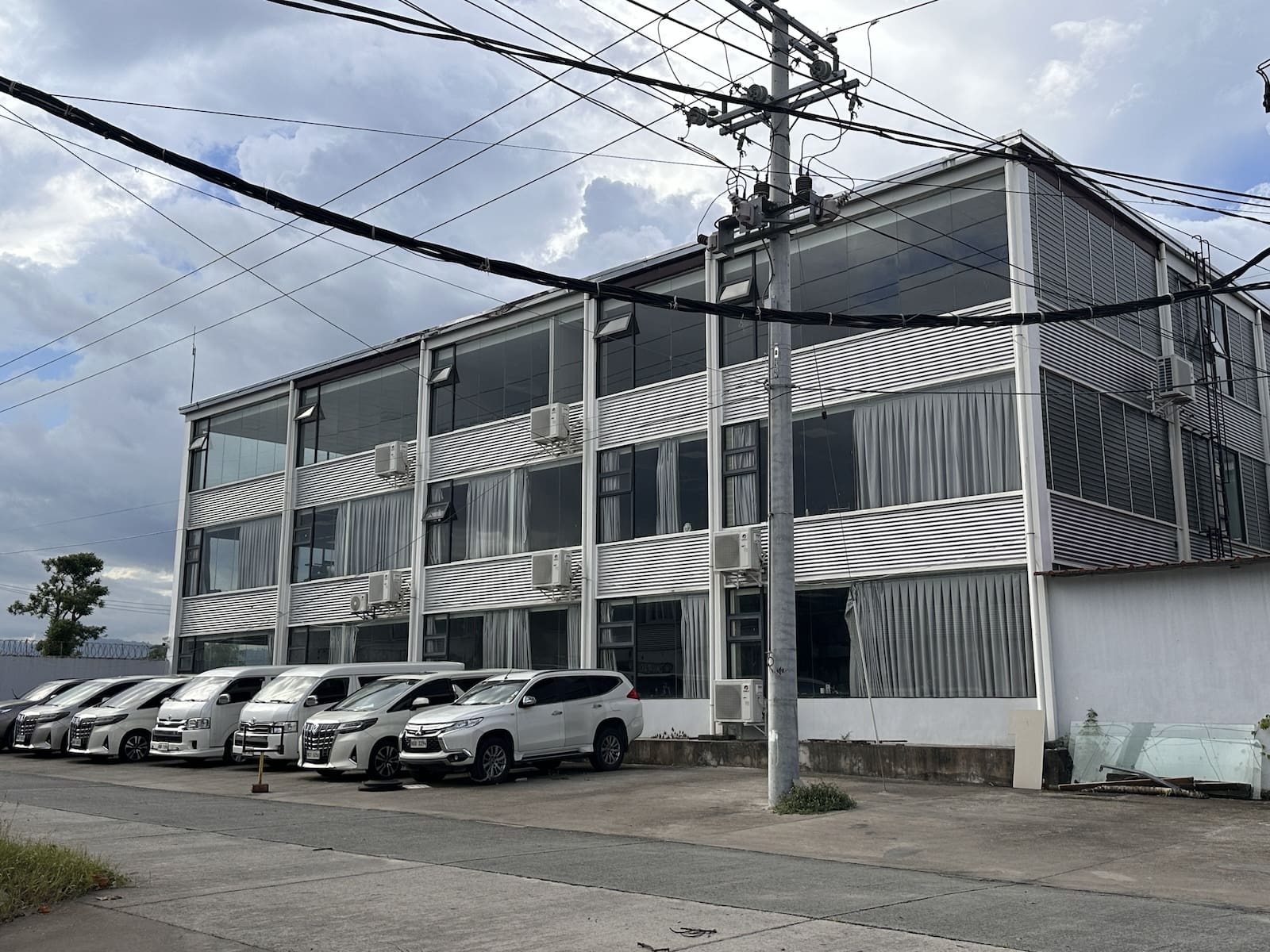
According to a money laundering complaint with the justice department, Ong is “a silent partner” in the Bamban scam hub, “as she was the one who contributed in the construction of the compound.”
Interestingly, Pagcor, a regulator, has offices in these questionable compounds. Yet, illegal operations thrived.
Of spies and fake documents
Alice Guo is a charmer, or so residents of Bamban would say. She won her first-ever electoral campaign in 2022, besting other candidates, some of whom are veterans in the field.
It did not matter to voters that Guo could not speak Kapampangan, the language used in the town and that nobody knew her in Bamban until only a decade ago.
As if revelations of scam operations were not explosive enough, the National Bureau of Investigation revealed that the former mayor’s real identity was Guo Huaping, a Fujian native who came to the Philippines in 2003 as a teenager based on immigration records.
It did not help that Guo herself could not answer basic personal questions about her family, school, and even where she was born – raising more questions on her citizenship.
Guo’s birth certificate was registered late when she was supposedly 17 years old. Asked about it, she said she could not remember. Guo said her father is a certain Guo Jianzhong, whose English name is Angelito Guo, while her mother is a certain Amelia Leal. She said she has no idea if her parents were married.
Guo also said she was born at home but could not identify a place, as she said she could not remember where the family lived at the time.
Guo said she grew up inside a farm, where the family raised hogs and where she was homeschooled all throughout high school. She, however, could not name the provider. Instead, she could only remember a certain Teacher Rubilyn – an answer that would later spark hundreds of social media memes.
“I don’t remember that I have records,” said Guo, who said she also did not attend university.
This prompted opposition Senator Risa Hontiveros to suspect that Guo is a spy – an accusation that the former mayor vehemently denies.
“Is Guo, like all others who have a mysterious past, an asset that China sent to enter our government for them to have an influence in Philippine politics?” Hontiveros said in May.
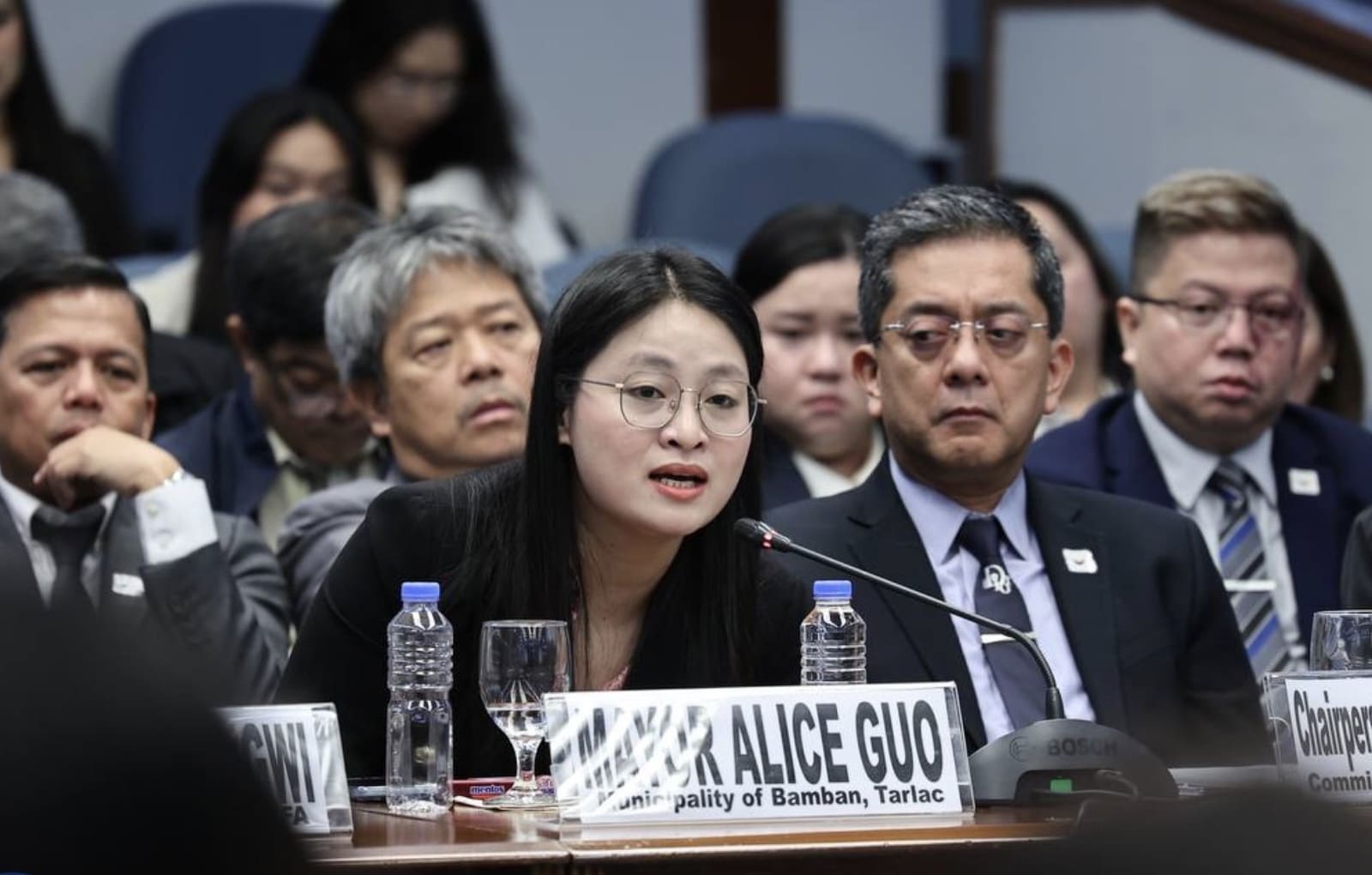
In a documentary of Al Jazeera English centering on self-confessed Chinese spy She Zhijiang, the team found an alleged dossier of Guo among She’s files. He claimed Guo, like him, is a spy working for the Ministry of State Security and asked him to fund her political campaign in 2022. The usual calm Guo was visibly irked and emotional when the documentary was presented in a House hearing. Guo maintained she is not a spy and she does not know She.
The Philippine Statistics Authority said it was also investigating 14 areas over late birth registration of foreign nationals. In our book Unrequited Love: Duterte’s China Embrace, which discusses the former president’s foreign policy shift and its impact on institutions and the public, Chinese-Filipino businessmen told us that there are several ways Chinese nationals gain a foothold in the country: through late registration, buying birth certificates of the dead, and marrying Filipino spouses.
It turned out it was not only Guo who allegedly faked documents. Tony Yang, the brother of former president Duterte’s advisor Michael Yang and linked to scam hub operations in Mindanao, admitted in the Senate that he is a Chinese national and that he obtained fraudulent government documents, including birth certificate and identification cards, so as to easily establish local businesses. His name on his fake birth certificate was Antonio Maestrado Lim.
It was the same scenario for Yang. He denied involvement in the scam compound in Cagayan de Oro, claiming that he, like Guo, only owns the lot leased to the company.
Like his brother Tony, Michael has been embroiled in scandals. A good friend of Duterte since the early 2000s, he was the financier of Pharmally Pharmaceutical Corp, which bagged billions worth of contracts during the pandemic despite having insufficient capital and experience.
Fall of POGOs? Not quite
After the initial fallout, President Ferdinand Marcos Jr ordered a ban on all POGOs during his State of the Nation Address in July. Coming off from the high-profile Guo controversy, both sides of the political fence lauded the announcement.
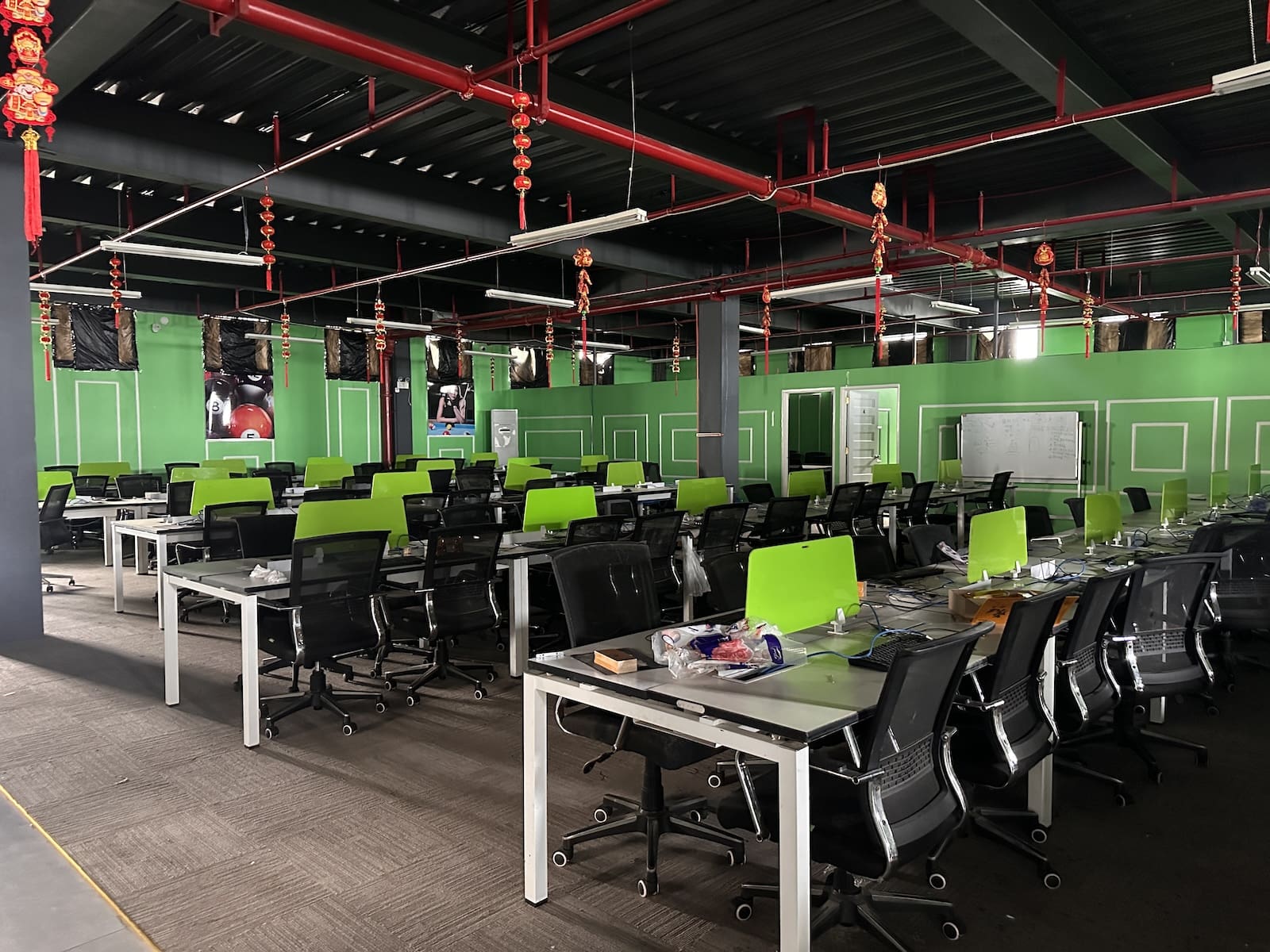
But it has not stopped scam hubs from operating, some even located near the Senate.
The fine print of the order came four months later in November. Marcos issued executive order 74 ordering a ban on all legal and illegal POGOs and Internet Gaming Licenses (IGLs). Legal firms must wind down by year end. It is however, unclear, if business process outsourcing firms that service POGOs are covered by the order.
The order, too, excludes online gaming inside Pagcor-operated casinos and resorts – a potential gray area that could allow scam hubs in casinos and leisure parks accredited with the regulator.
Another contention is whether or not the Cagayan Economic Zone Authority (CEZA) is covered by the ban. Since CEZA has its own charter or law, it has its own licensing and regulatory rules. Marcos’ order does not explicitly include CEZA. But in a separate memorandum, Malacañang instructed CEZA – headed by Katrina Ponce Enrile, the daughter of Juan Ponce Enrile, Marcos’ chief presidential legal counsel – to follow the order. But this can be tricky as laws are generally higher in rank than executive orders.
The issue lies, too, with implementation of these orders. So many questions than answers now. The end of POGOs and the scam hubs might not be in sight… yet.







